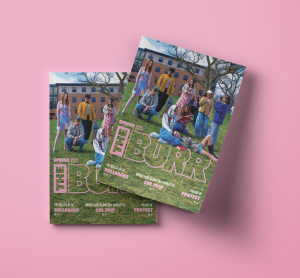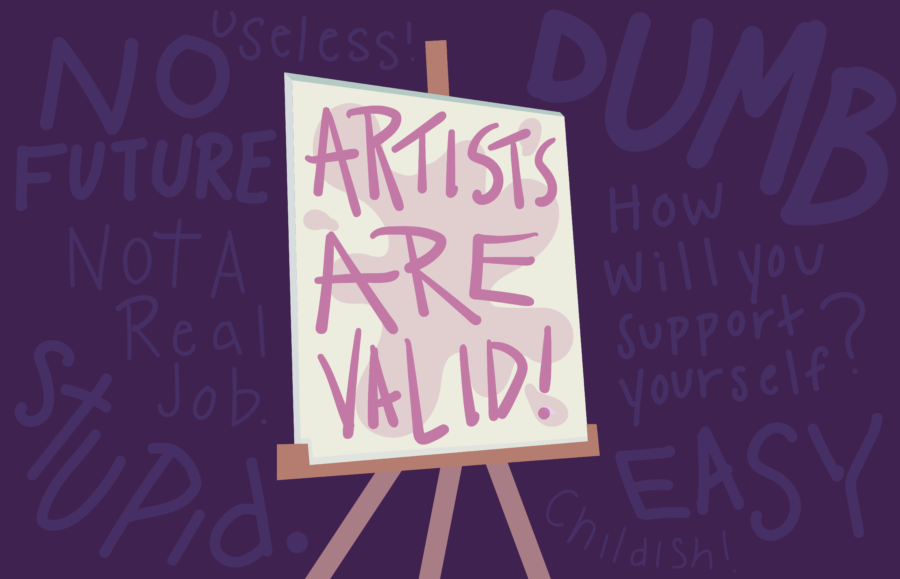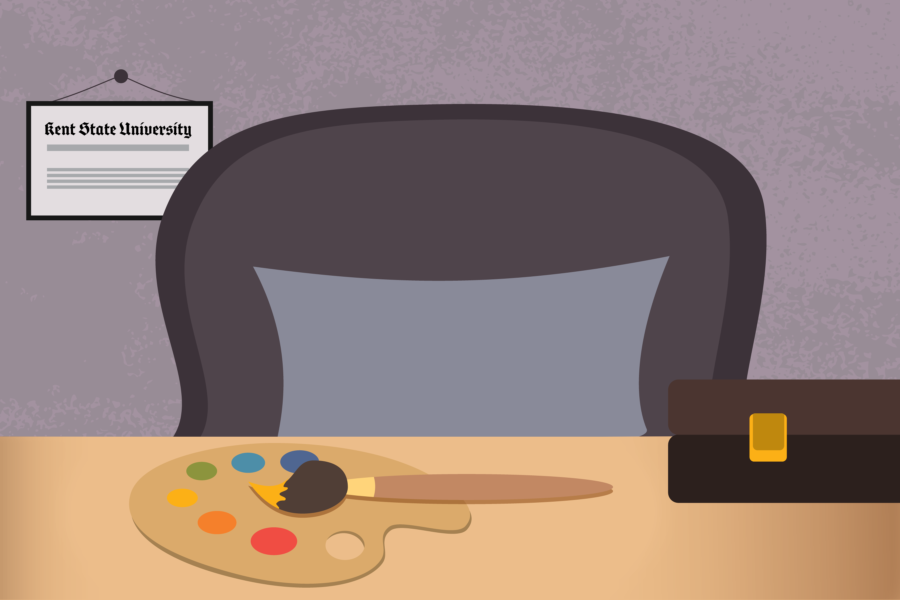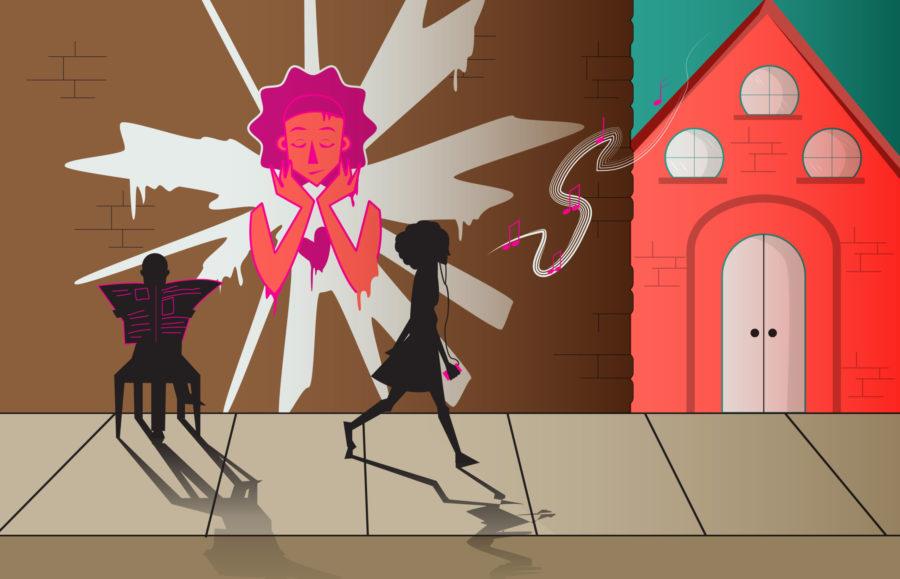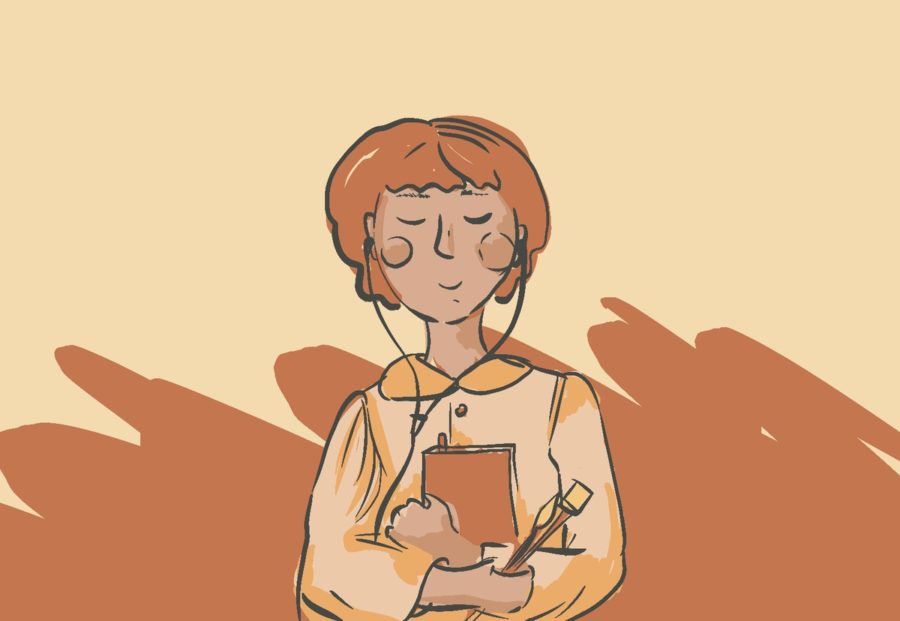Illustration by Abigail Pickens 🥚
Imagine this: you are talking to a stranger, and you’re really hitting it off. The conversation is flowing, you think you’ve made a new friend, so you start telling them about your career. As soon as you mention that you are an artist or are pursuing an arts degree, the entire conversation flips. They say, “Oh. Well, what can you even do with that?”
Skepticism surrounding arts careers is real. Saying you’re going into an arts field often elicits responses like, “How do you plan to support yourself doing that?” and the classic, “I was really into [insert artform here] back in high school.”
From personal experiences and from talking to my friends who are artists, I find that this is a common occurrence. The reaction we get when we talk about our career is often one of disappointment, dismissal or even dismay.
Of course, that’s not to say that everyone thinks this way. There are many amazing, supportive people who love to hear that you are pursuing something you are passionate about. The problem is that there are still many skeptics who, whether out of lack of awareness or open condescension, belittle arts careers.
Where this sentiment comes from
There are several potential causes for negative sentiments towards arts careers. One major factor is a lack of education and awareness about the arts. Many people do not know how to actively appreciate art. It is likely that they are appreciating at least some form of art daily, only without realizing it, so they don’t consider art an important part of their lives. Misunderstanding of art itself leads to misconceptions about arts careers.
Another problematic source is the general societal push for STEM careers over arts careers. In my blog post “An Artist’s POV: Art vs. STEM,” I discussed this phenomenon more in depth. Essentially, careers in science, technology, engineering and mathematics are elevated above arts careers, and as such, arts careers are viewed as less important and less prestigious. However, just because one is important does not mean the other is unimportant, and that goes both ways. We need to start valuing all careers, because they each add value to society in their own way.
Why it matters
The stigma around arts careers and the way it presents itself in everyday conversations matters, because it promotes value judgments and affects mental health and career choices.
In our culture, you often receive a value judgment as a human based on how valuable your career is deemed to society. It is easy to see how this line of thought becomes dangerous very quickly. By this flawed cultural reasoning, saying that the arts are less valuable than other careers insinuates that artists are therefore of lesser value than, say, doctors, lawyers or engineers. Why must we compete for our personal value? No career choice can make anyone inherently less valuable or worthy as a human being.
Another variation on the theme includes being told that your dreams are unsustainable or unrealistic. In reality, people make a living for themselves in the arts every day. The misconception that it is impossible to succeed in the arts likely comes from a lack of education about arts careers. Many people outside of the arts do not know what the arts career scene is like, simply because they have never experienced it. The tendency is to think that there are only linear pathways, that a career trajectory has to look a certain way to be successful and that very few artists make it as a result.
As an artist, I can say that it is definitely possible to make it in the arts in many different ways. Sure, most arts fields are extremely competitive, but these days, what field isn’t? That is one big thing that college has taught me about my career — there are so many different paths to success. Your career does not need to look like anyone else’s. You can often create your own career opportunities by being creative, networking and just putting yourself out there. If anyone knows how to succeed in the arts, it’s artists. If we truly want it, we will put in the work to make it happen.
If others focused on encouraging artists rather than doubting them and constantly telling them they should reconsider their life goals, perhaps it would make success that much easier. Going into a career that has a well-known stigma attached to it is a daunting prospect. In fact, lack of support is one of the reasons why some very talented people I know never pursued their passion for art.
A word to artists
I know firsthand how it feels when people don’t regard art as a legitimate career choice. When you are passionate about something that others do not take seriously, it can be very discouraging. It can contribute to burnout, lack of self confidence and even mental health issues in more severe cases. Fortunately, there are ways artists can work to combat the stigma around arts careers. Here are a few ideas:
- Continue to create art no matter what people say.
- Work to increase education about the arts when you can.
- Spread awareness about arts and artist appreciation.
- Remind yourself of why you love what you do, rely on the support of those who love and support you and keep doing what you love.
Final words
Skepticism and lack of support for arts careers comes with a lot to unpack. It weighs on the mind of nearly every artist. As a culture, we need to halt the trend of disrespect for the arts, because they are vital to the health of individuals and society at large. We can start by recognizing the legitimacy and importance of artists. Arts careers are perfectly viable, and they provide many people with a way to make a living doing something they are passionate about. It’s a beautiful thing, honestly. As artists, we will continue to make our art, and we hope that you love consuming it as much as we love creating it.
One last important note: although artists face a stigma, I do want to make mention of the many people that do support us. To friends and family, to professors, to patrons and to everyday art consumers, your support is noticed and is always greatly appreciated.

